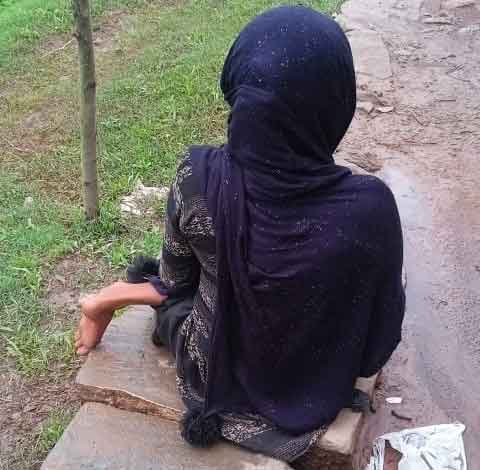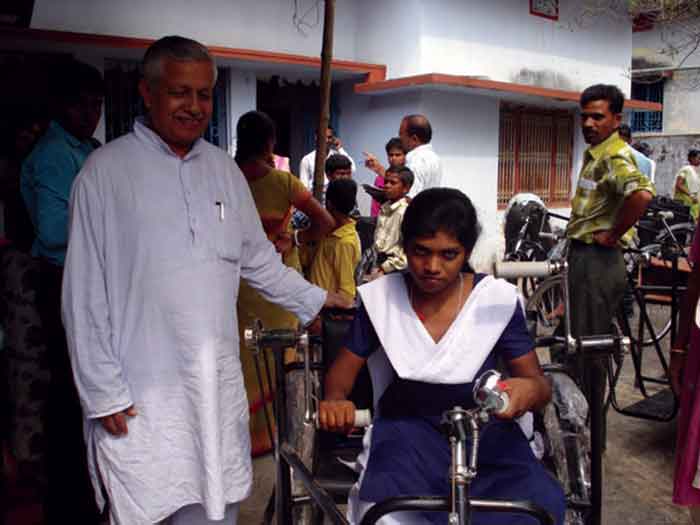
The government has taken significant steps to support and protect the rights of persons with disabilities through the Rights of Persons with Disabilities Act (RPWD Act) 2016, implemented on 19 April 2017. This crucial Act includes provisions for various benefits, such as reservation for PWDs in government jobs, ensuring accessibility features, and promoting their participation in decision-making processes through Central and State Advisory Boards on Disability. Moreover, it emphasizes inclusive education for persons with disabilities.
Despite these progressive measures, there have been challenges in implementing the Act and the related impact of these services on the ground seems to be minimal, if not negligible. One region that exemplifies the persisting issues faced by disabled individuals is Poonch district in Jammu and Kashmir. Numerous villages in this area have a significant population of disabled individuals, with ten to twenty disabled persons found in almost every village. Many of these individuals endure some form of suffering or mistreatment, which is deeply concerning.
A particularly vulnerable group among persons with disabilities in Poonch district is girls. Girls with disabilities can be especially subjected to gender-based violence, exacerbating their already challenging circumstances. Gulnaz Akhtar, an 18-year-old resident of Hari Budha village in Haveli Tehsil, Poonch district of Jammu and Kashmir, has faced significant challenges since she became disabled at the age of nine months, leaving her unable to walk without assistance. She shares the difficulties she encounters in her daily life, expressing how her pain intensifies with age and her reliance on family members for mobility and everyday tasks. Despite her efforts to move independently, using slippers in her hands, she still feels helpless and vulnerable to the looming threat of gender-based violence. Gulnaz fears the possibility of facing sexual assault when alone, as she knows she cannot adequately respond or protect herself in such situations. “What if someone tries to sexually assault me in the absence of my parents,” she rued.
“Our financial conditions are preventing me from receiving proper treatment. Despite being eighteen years old, I have never been to a hospital, nor did I go to the medicine camp in Kabar village. The lack of access to news and information due to our poverty further exacerbates our struggles. Being poor, crippled, and handicapped, I feel deprived of all my rights,” expressed Gulnaz.
Abdul Rasheed Chichi, the Sarpanch of the village tried to help Gulnaz in connecting to several schemes for the disabled but to no avail. “As a sarpanch, I help in every paperwork of different schemes, but Gulnaz and many like her in our village have not become beneficiaries of any schemes so far,” the Sarpanch expressed.
According to Gulnaz’s parents, Mohammad Qasim Umar, 60, and Naseem Akhtar Umar, 44, they do not even have a regular wheelchair to assist her in moving around the house, making it difficult for Gulnaz to access essential places like the bathroom or kitchen independently. Her parents have been her primary caregivers, supporting her every step of the way. Whenever they need to tend to household chores or other tasks, someone has to carry Gulnaz from one place to another since she is unable to move independently. This situation has taken a toll on their well-being, especially during Gulnaz’s reproductive health, where her mother, has to be there to take care of her.
As the family is facing financial constraints, they cannot afford the necessary treatments and aids that could improve Gulnaz’s condition. The burden of caring for Gulnaz will become even more challenging when they are no longer around, and they worry about who will take care of her then.
Numerous families, including Gulnaz’s, live in fear for their child’s future due to the lack of access to essential support services. It is crucial for the government and relevant authorities to take decisive action in addressing these pressing issues and ensuring the successful implementation of the RPWD Act. This entails establishing comprehensive support services and enhancing accessibility to justice, while also cultivating an inclusive environment that prioritizes the rights and well-being of persons with disabilities, with special attention to vulnerable groups such as girls.
The article is written under Laadli Media Fellowship 2023.
Rehana Kousar Rishi is Charkha’s Volunteer Trainer from Poonch, Jammu and Kashmir. Share your feedback at [email protected]
Charkha Features














































